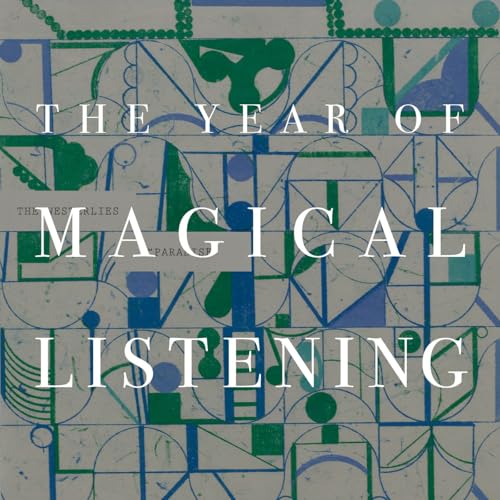
046 :: PARADISE
カートのアイテムが多すぎます
ご購入は五十タイトルがカートに入っている場合のみです。
カートに追加できませんでした。
しばらく経ってから再度お試しください。
ウィッシュリストに追加できませんでした。
しばらく経ってから再度お試しください。
ほしい物リストの削除に失敗しました。
しばらく経ってから再度お試しください。
ポッドキャストのフォローに失敗しました
ポッドキャストのフォロー解除に失敗しました
-
ナレーター:
-
著者:
このコンテンツについて
Paradise by The Westerlies, released by Westerlies Records in 2025. Listen / Buy direct
- "Paradise"
- "Fight On"
TRANSCRIPT
Such a timeless thing, music – despite the fact that it exists in time, is inextricably bound to time, somehow it's able to transcend it.
I could tell you that this song was released this year, was recorded not long before that, but this says so little about how the song actually sounds and feels. What I immediately hear is history and tradition, or something deeper than that, something elemental, the very essence of music itself: a communion of voices, some human and some instrumental, coming together in harmony and forming something greater than the sum of their parts – a hymn, a prayer, an ode to the paradise that awaits us, which, in its bewitching amalgam of elements, seems in a small way to make that paradise manifest before our ears.
Perhaps this is to be expected, as this is explicitly spiritual music, as its lyrics make plain. But its purpose is not to proselytize. It's as if the musicians are borrowing these idioms to reveal the spiritual power inherent in music: its ability to make palpable worlds beyond our own, to make us feel the touch of a higher power brushing up against our side.
And there's something else I can't help but notice: As the song proceeds, its subject shifts from "I" to "we", and the singer turns to address us, their "comrades through the wilderness", their "partners in distress", to assure us that "we have a home in glory". I hear this as a reminder that paradise is never reached by oneself, and is only ever discovered in the collective – in the same way that music is an intrinsically relational phenomenon, a special alchemy that emerges between the disparate pieces it brings together: between melody and harmony, between singer and ensemble, between music and lyrics, and between musician and listener.
And on that note, let's hear more of this alchemy in action. Because I don't want that first song to give you the wrong impression about this record, which is a collection of songs by a brass quartet, occasionally accompanied by a vocalist, but for the most part just playing on their own, weaving together their different tones and timbres into a tapestry of totalizing sound. And because it's a quartet, you can still make out its four different strands, its chorus of voices, some sustained, some staccato, some high, some low, some quiet, some loud, some melodic, some harmonic, and some almost textural. And because it's a quartet, there is also something to it above and beyond its individual members, a manifest image that comes into view from each instrumentalist playing and moving in concert with one another – in a word, there is music.
I'll admit: A lot of the joy of this music for me comes from its novelty. I don't spend much time listening to brass ensembles, and so I'm especially struck by the distinctive pleasures of the form: the punch of the articulation, the interstitial breaths, the thick bass of the trombones, the squeal of a trumpet, the dynamic fluidity, the sheer power of horns. It's all the expressiveness of voice, amplified by a bell, and thus transformed into a clarion call. It calls us to attention. It calls us to assemble. It calls us to listen and behold.
まだレビューはありません


